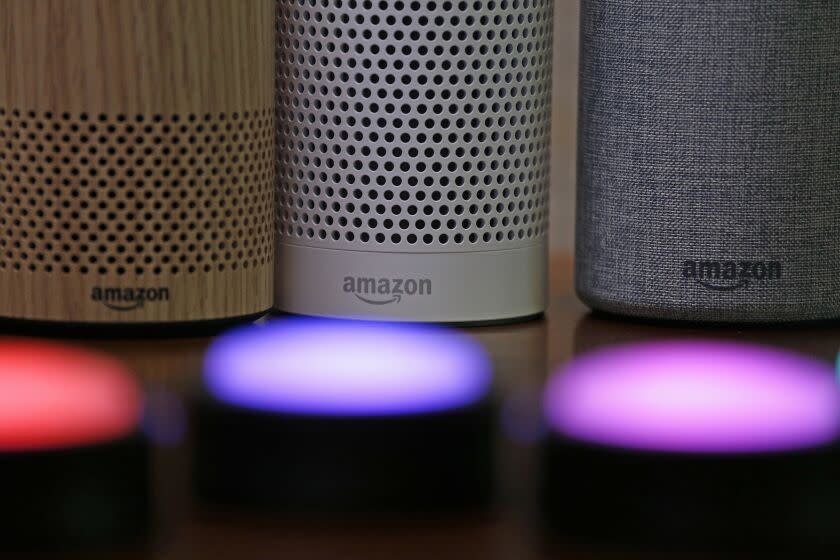Letters to the Editor: AI bots with personhood rights? Why we're still far away from that

To the editor: The desire of Eric Schwitzgebel and Henry Shevlin to jump far ahead of what is the actual state of artificial intelligence is both wrongheaded and disturbing in its implications to society. ("Is it time to start considering personhood rights for AI chatbots?" Opinion, March 5)
The implications to society are clear and have been discussed for decades, usually from the perspective of enslaved sentient non-humans. At the moment, however, it is more important to note that it is almost certainly impossible for sentient life to come about from digitally programmed linear algorithms.
And despite the breakthrough of "fuzzy logic" and neural networks, all current artificial intelligences are linearly programmed code.
The distinguishing characteristic of any type of sentience is that it has emotional content as well as analytic ability. Emotional content does not come from analytical data input but from nonlinear, visceral reactions — emotions — such as fight or flight, terror, pain and hope.
To use a famous example from TV, the character Data from the "Star Trek" series needed a special "emotion chip" to allow him to feel emotions rather than trying to analyze his way to understanding them. That "chip" doesn't exist and cannot be just another type of computer passing data to the main computer. It will have to be capable of providing a different type of input to an AI "brain."
Michael Lampel, Granada Hills
..
To the editor: Schwitzgebel and Shevlin miss the mark, arguing we need to figure out AI's rights before it is too late.
There are already billions of sentient creatures on the planet, some nearly as sophisticated, amazing and deserving as us. And so far, human beings have never recognized a personhood right that belongs to them.
Indeed, human beings are allowed not just to hurt other animals with impunity, but people are allowed to steal their life and many do so daily.
Secondly, when has science even been able to do something but wisely decided against it? (Nuclear bombs, anyone?) No government injunction would manage to stop the development of AI. If science can create conscious beings, it will, and that is that.
So now humanity must face this newest Frankenstein. I hope there will always be a means to pull the plug.
JJ Flowers, Dana Point
..
To the editor: So there might be a future when AI chatbots, a human computer app invention, are granted personhood rights, while sentient animals continue to be slaughtered or subjected to horrible experiments with no regard for their fear and pain.
It's perhaps what enabled humans to conquer the planet — the ability to compartmentalize and reason away.
Smadar Marshall, Westlake Village
..
To the editor: I hope that before we find the need to confer rights to AI systems, we make sure that all humans have access to basic rights.
In spite of our much-lauded progress over my 65 years on this planet, we seem to be woefully falling backward. If we don't correct this, we will truly be left behind.
Michael Rotcher, Mission Viejo
..
To the editor: It's only a matter of time. The Supreme Court recognizes corporations as "persons," so why not AI?
Alexa will be able to vote, and Elon Musk's "self-driven" cars can may one day form roving bands of PACs. What a world.
Katrin Wiese, Rialto
This story originally appeared in Los Angeles Times.

